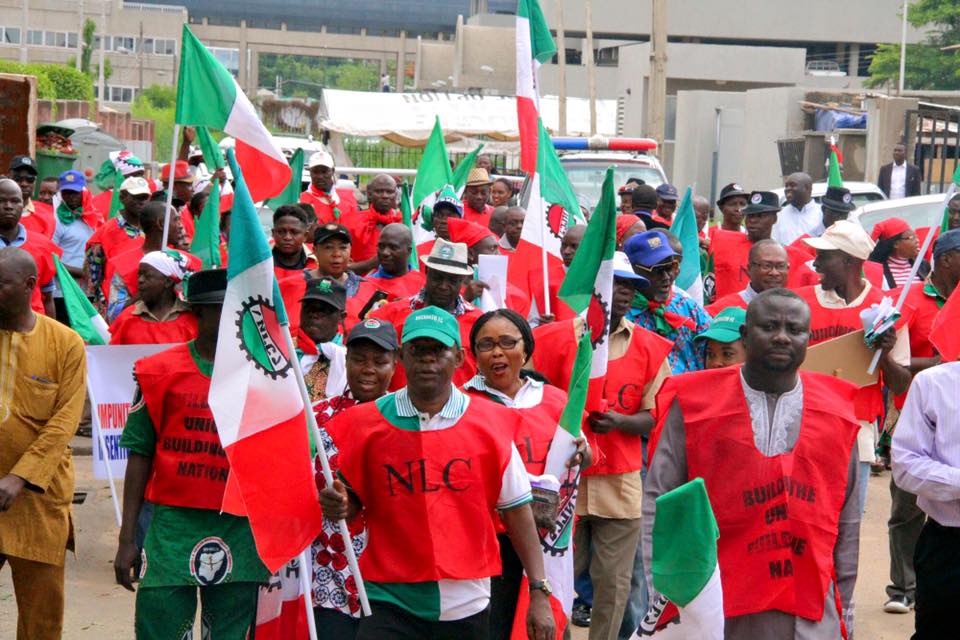ABUJA, Nigeria – The Federal Government of Nigeria has filed a contempt lawsuit against the Nigeria Labour Congress, NLC, and the Trade Union Congress, TUC, for proceeding with industrial action despite a subsisting interim order restraining them from doing so.
The organized labor unions protested nationwide on Wednesday, August 2, 2023, defying the legal injunction.
In the suit marked NICN/ABJ/158/2023, the Federal Government and the Attorney General of the Federation are the applicants, while the NLC and TUC are named as the defendants.
Several high-ranking officials of both unions, including NLC President Joe Ajaero and TUC President Engr Festus Usifo, were specifically named in the contempt notice.
The Solicitor-General of the Federation and Permanent Secretary, Federal Ministry of Justice, Beatrice Jedy-Agba had twice stated that the industrial action was illegal, referencing the interim order by the National Industrial Court in Abuja.
The contempt notice, signed by Senior Registrar Balogun Olajide, warns that the defendants will be guilty of contempt of court and liable to be imprisoned unless they obey the court order.
The notice reads:
“Take notice that unless you obey the directions contained in the order of the National Industrial Court, Abuja, delivered by Honourable Justice Y. Anuwe on June 5, 2023, as per the attached enrolled order, you will be guilty of contempt of court and will be liable to be committed to Prison.”
The notice goes on to detail the court’s specific orders, including restraining the labor unions from embarking on industrial action and setting the hearing date for the motion on notice for June 19, 2023.
The Federal Government also attached a copy of the exparte order made by Justice Anuwe on June 5, 2023, to the notice of contempt proceeding forwarded to the NLC and TUC officials.
The move by the Federal Government intensifies an already fraught relationship between the administration and labor unions.
The industrial action and protests have been organized in response to various grievances, including the recent removal of fuel subsidies and the subsequent price hikes.
The situation has led to a tense standoff, with both sides refusing to back down.
Legal experts now believe that the courts will play a crucial role in determining the outcome of this standoff.
The contempt proceedings against NLC and TUC may set a precedent for how the Nigerian legal system responds to organized labor actions that defy court orders.
The outcome of this case could have lasting implications for labor relations in Nigeria and may reshape the legal boundaries within which unions operate.
It underscores the challenge of balancing the right to protest and the necessity to comply with legal directives.
Whether this legal move will lead to a resolution or further escalation of the conflict remains to be seen.







